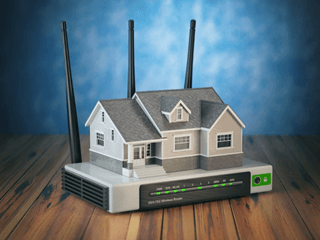It makes sense for businesses to invest vast sums of money in various types of digital security. Businesses contain multitudes of information that cybercriminals desperately want, from client and customer payment information to details about employees and even industry secrets that might carry value. Statistics show that businesses are on the receiving end of an overwhelming number of cyber attacks, and businesses stand to lose hundreds of thousands of dollars if they don’t actively work to keep themselves safe.

But home users — what do they have that cybercriminals want? Most home users believe that they don’t have much to offer a cyber attacker beyond a few credit cards and a meager personal savings. However, the truth is that home users are becoming an even more attractive target than businesses of late — and here’s why.
More Employees Are Working From Home
Though the economy is slowly but surely coming back to life, the weeks upon weeks of shutdowns in early 2020 sent almost all workers home. Some became unemployed, some furloughed, but most employees were suddenly expected to work remotely, using their personal devices and home networks to complete their regular responsibilities.
On one hand, continued employment would not have been possible for so much of the American workforce were it not for the power and proliferation of the internet. On the other hand, few home networks are robust and secure enough to handle business activity. Employee and customer data are more at risk on insecure home networks, and trade secrets could easily be pilfered and leaked.
Though employers should do what they can to educate their workforce about the importance of network security and to encourage employees to secure their home networks for their own sake, businesses should also consider taking home security into their own hands. It might be prudent for organizations with especially sensitive data to give workers access to a VPN or robust tools for a secure network.
Home Users Have Other Valuable Resources
Finally, home users aren’t merely valuable for their access to business data. In fact, there is plenty on home users’ hard drives that cybercriminals find worth exploiting. Personal information, like social security numbers, birthdays, home addresses and the like, can lead to identity theft, which is an incredibly lucrative criminal pastime. With this info, criminals can open and abuse lines of credit and obtain false identification cards — or they can sell the data to other people who want to do those things.

Sometimes, it isn’t merely data that cybercriminals want to get ahold of. Ransomware is a type of malware dedicated to extorting users for money, which cuts out the middleman work of data and gets right to the profits. Similarly, cryptojacking is a type of cyberattack where cryptomining software is secreted onto a victim’s device and runs in the background, generating cryptocurrency for attackers while swiftly degrading a user’s devices and experience. It is clear that home users have plenty of valuable resources that attackers want and will pursue.
Most Home Users Don’t Understand or Enact Security
Though small and medium-sized businesses continue to be prime targets for cybercrime, business leaders are starting to get wise that network and endpoint security solutions are much more affordable than trying to recover from a serious cyberattack and data breach. Business budgets for cybersecurity are increasing, and as a result, many more businesses are much, much more difficult for the average cybercriminal to access.
In contrast, home networks — while containing notably less valuable data — are essentially defenseless, meaning attacks don’t require much effort to end in success. If a cybercriminal can carry off the data of hundreds of home users in a day or week, they will be able to gain financial support. Thus, because businesses are arming themselves, home users are looking more and more like favorable targets.
If a home user puts up any resistance against attack, most cybercriminals will look elsewhere for faster, easier prey. Thus, home users need to invest in network security solutions and apply safe online behavior to turn criminal attention away from themselves. There is a multitude of online courses on cybersecurity to help home users learn.
It is foolish to believe that home users are safe because they have little to offer. There is plenty of power and profit to be found on home networks, especially networks that lack any security whatsoever. The sooner home users shore up their defenses, the sooner everyone can avoid the threat of cyberattack.
